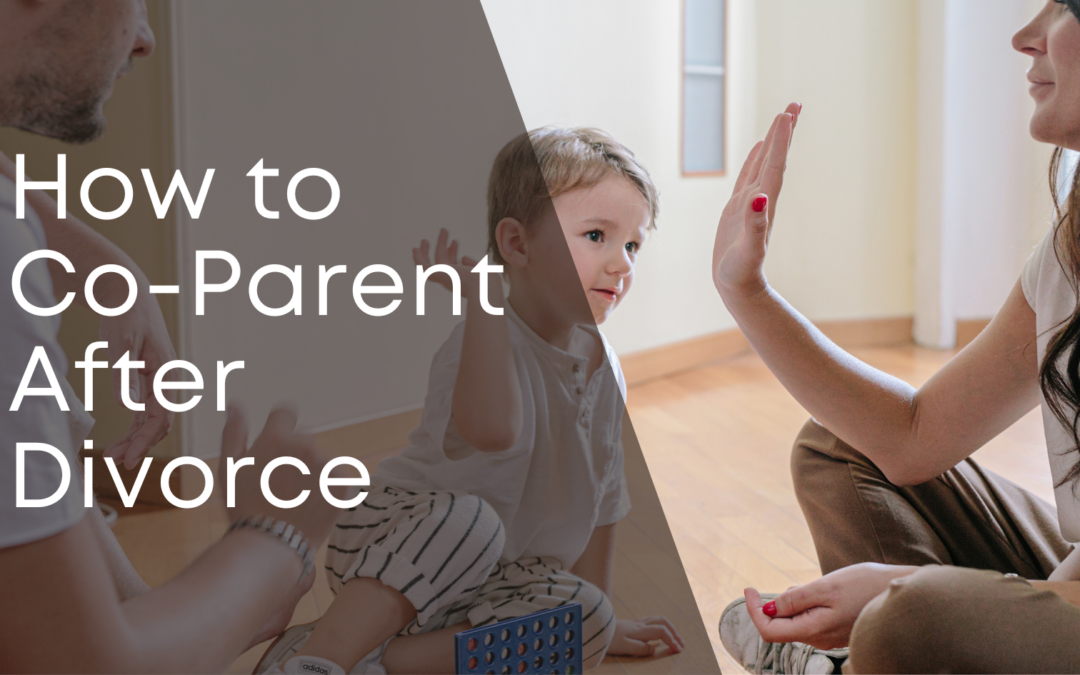Picture the scene. It’s your child’s birthday party. There’s laughter, cake, and your little one’s eyes are alight with joy. But standing on the other side of the room is your ex-spouse, a constant reminder of the intricate dance that is co-parenting after divorce. The issues you face seem countless—managing a rollercoaster of emotions, fostering effective communication with your ex, ensuring consistency in parenting styles, dealing with the painful division of time with your child, accommodating new partners, and sorting out financial responsibilities. It feels like navigating a maze without a map. Yet as overwhelming as it might be, there’s hope. A smoother path to co-parenting is not just a dream, but a goal within your reach.
Unraveling the Knots of Co-Parenting After Divorce
Co-parenting after divorce can be a challenging task as it involves navigating a new relationship dynamic with your former spouse while prioritizing the well-being of your children. Here are some of the hardest parts of co-parenting after a divorce:
- Managing Emotions: Divorce often brings a range of emotions, including anger, resentment, sadness, and sometimes guilt. Managing these emotions while communicating effectively with your ex-spouse can be tough.
- Effective Communication: One of the most significant challenges post-divorce is maintaining open and respectful communication with your ex-spouse. This is crucial for co-parenting as it involves regular discussions about your children’s needs, schedules, and other important matters.
- Consistent Parenting Styles: It can be hard to ensure that both parents are on the same page when it comes to rules, discipline, and parenting styles. Differences in these areas can lead to confusion and stress for the children.
- Sharing Time with Children: The division of time, especially during holidays, birthdays, and other special events, can be a difficult aspect of co-parenting. It’s often tough dealing with the reality of not being with your child all the time.
- New Partners: When one or both parents start dating or remarry, it can introduce new dynamics that can be challenging to handle. Adjusting to these changes while ensuring the children are comfortable can be difficult.
- Financial Responsibilities: Disagreements over financial responsibilities, including child support, education, health care expenses, etc., can be a source of ongoing conflict.
While these challenges may seem daunting, with patience, communication, and sometimes professional help like a divorce mediator, co-parenting can become manageable, and even positive, over time. It’s important to remember that the ultimate goal is the happiness and well-being of your children.
Transforming Co-Parenting Through Divorce Mediation
My name is Steven Unruh. I’ve been a divorce mediator for over 30 years. In my career, I’ve walked hand-in-hand with countless families through the tumultuous aftermath of a divorce, transforming their fear and uncertainty into a clear, tangible path forward. I’m here to tell you that there’s hope, and I’m here to guide you towards it. Together, we can turn your worry into a co-parenting success story.
1. Prioritize the Children
Firstly, and most importantly, your children’s well-being must be your guiding star, informing every decision, every conversation, and every step you take during this transition. Various studies suggest that children who see their parents cooperating and communicating amicably post-divorce demonstrate greater emotional security and perform better academically. So it’s not just about staying civil for civility’s sake; it’s about creating an environment of love and support, despite the circumstances.
2. Open Communication
Secondly, strive to facilitate open, respectful communication with your ex-spouse. Yes, it can be tough, especially when emotions are running high. But it’s crucial for your child’s development and adjustment. According to the Child Development Institute, children with parents who communicate effectively post-divorce show better adjustment and a more comprehensive understanding of the situation.
3. Establish Consistent Rules
Thirdly, make an effort to establish and enforce consistent rules across both households. A study in the Journal of Family Psychology found that children who experienced a consistent environment post-divorce exhibited less aggression and had better social skills. Uniform rules provide a sense of stability and continuity, crucial elements in a child’s life that is filled with so many changes.
4. Mediation over Litigation
Fourthly, consider opting for mediation over litigation. Divorce mediation promotes collaboration and significantly reduces hostility, a major bonus for everyone involved. A study from the Journal of Consulting and Clinical Psychology found that families who opted for mediation, compared to those who went through the litigation process, had more positive interactions post-divorce.
Addressing Objections
You might think, “My situation is too complicated,” or “My ex-partner won’t cooperate.” These concerns are valid. But remember that every journey starts with a single step, and sometimes that step needs a helping hand. Divorce mediation provides a neutral ground to start that conversation, a safe space that guides you step-by-step through the complex labyrinth of co-parenting.
Journey Towards Successful Co-Parenting
Imagine a future where your child, despite the divorce, grows up feeling loved, secure, and understood. Picture working together with your ex-spouse to ensure your child gets the best of both worlds. Imagine being a team, not for each other, but for your child. This is the gift of successful co-parenting.
Embrace the journey. Start with mediation. I’m here to help, with the experience and dedication to guide you through. Reach out today, and together, let’s turn your co-parenting concerns into a narrative of strength, resilience, and most importantly, love.


Recent Comments